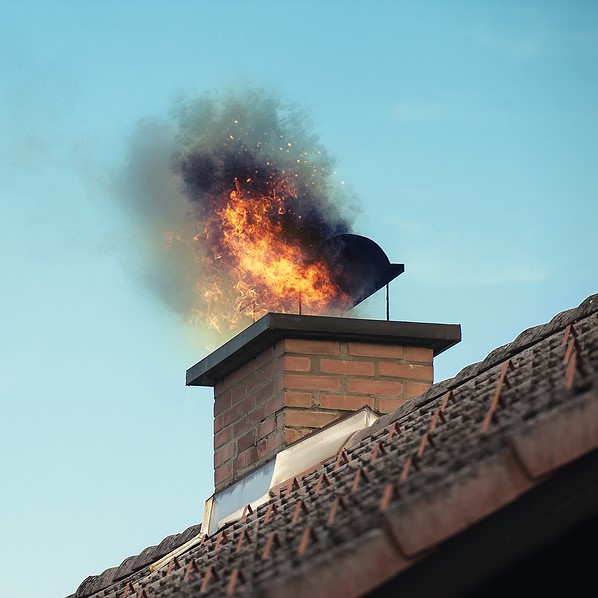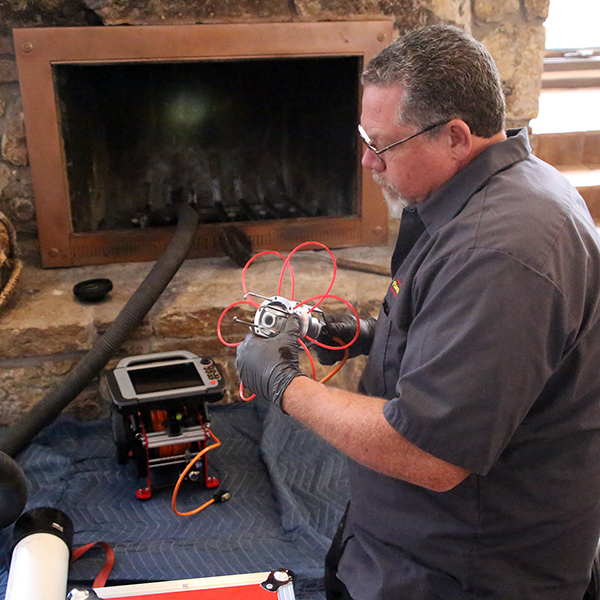With the arrival of winter, you will undoubtedly be using your fireplace more, which means you will also be using your chimney more. So, what does that mean? It means your chimney is at greater risk for a fire, but don’t worry, we have the answer. Here is a guide- Avoiding Winter Chimney Fires: Crucial Prevention Tips.
 Tips for Avoiding a Chimney Fire
Tips for Avoiding a Chimney FireSoot and creosote are generated every time you burn logs. When soot and creosote coat your walls, your chimney has a greater risk of a fire being sparked by a floating ember.
It’s simple: a steel chimney liner is much less dangerous because it can withstand higher temperatures and is less likely to have fires. A steel liner will also keep carbon monoxide from seeping into your home. A qualified chimney sweep service can install a stainless steel chimney liner if your chimney doesn’t have one.
It might not seem like a fire preventative, but chimney caps keep leaves, pine needles, pine cones, acorns, and other debris from entering your chimney. It also protects your chimney from water damage by keeping rain, snow, and hail from entering.
Your chimney may look like an ideal winter residence for local wildlife seeking to keep warm in colder weather. Nests can block your chimney and ignite when a floating ember makes contact with it. Nests also create a blockage that can cause carbon monoxide and other gases to enter your home instead of going up your chimney.
Burning hardwood in your fireplace means less creosote and less chance of a chimney fire igniting. Hardwoods may cost slightly more, but the lower risk of a chimney fire is worth it.
A certified chimney sweep service can inspect and clean your chimney, ensuring no creosote or soot buildup. They can ensure no breaches in your chimney liner could lead to a house fire or carbon monoxide penetrating your home. After inspection, they will give you a written quote before they proceed with any repairs. You should have your chimney serviced annually to ensure that not only is it at less risk for a fire but is in optimum condition for sustained fires in your fireplace.
Here are the signs if the worst happens and a fire ignites in your chimney.

If you encounter a chimney fire, call 911 immediately to ensure the fire is extinguished and doesn’t spread. Make sure that you always put safety first. Never leave your home with a fire burning, and place fire detectors and carbon monoxide detectors fifteen feet from your fireplace.
Our F.I.R.E.-certified chimney inspectors will examine and clean your chimney to keep creosote and soot buildup from igniting when you use your fireplace. They will also check for any needed repairs that will extend the life of your chimney. Call us at 719-661-3277 or fill out our easy contact form. One of our chimney specialists will be happy to assist you.